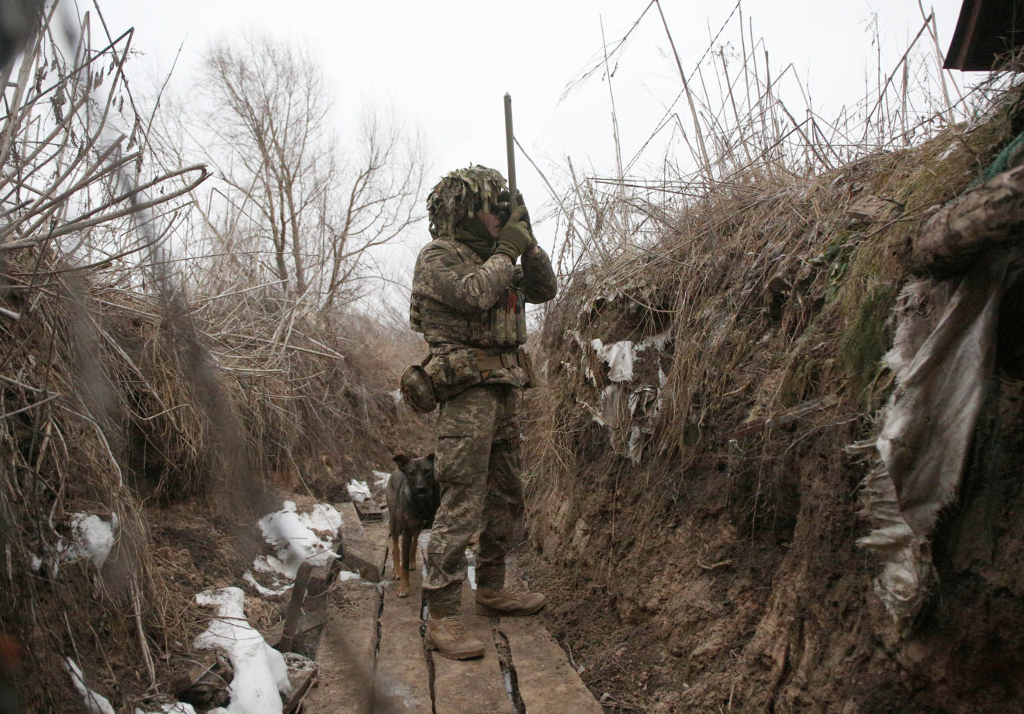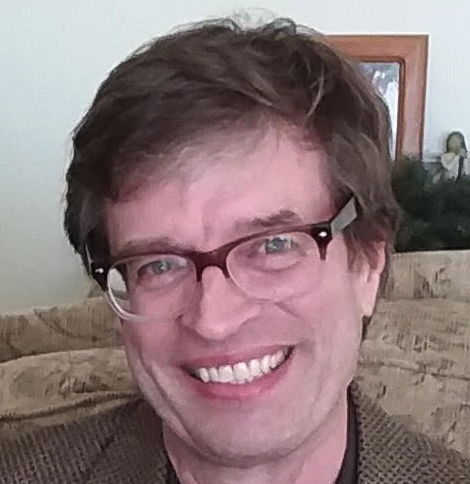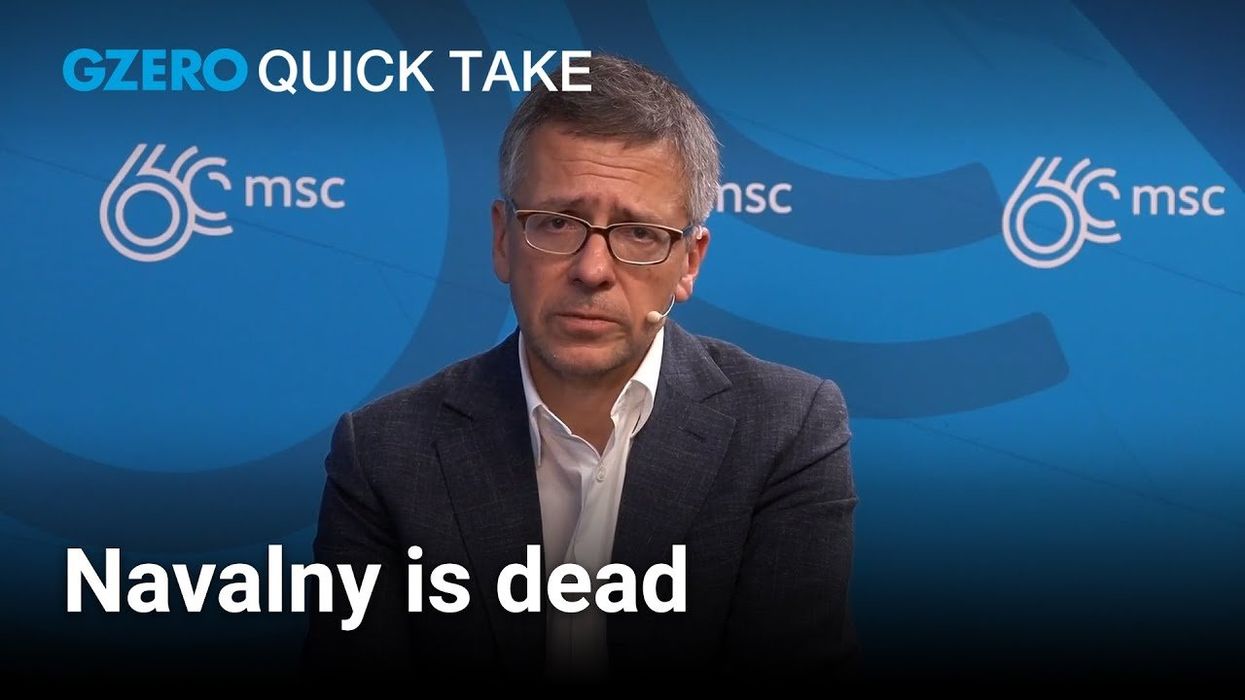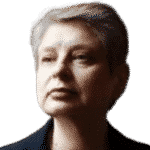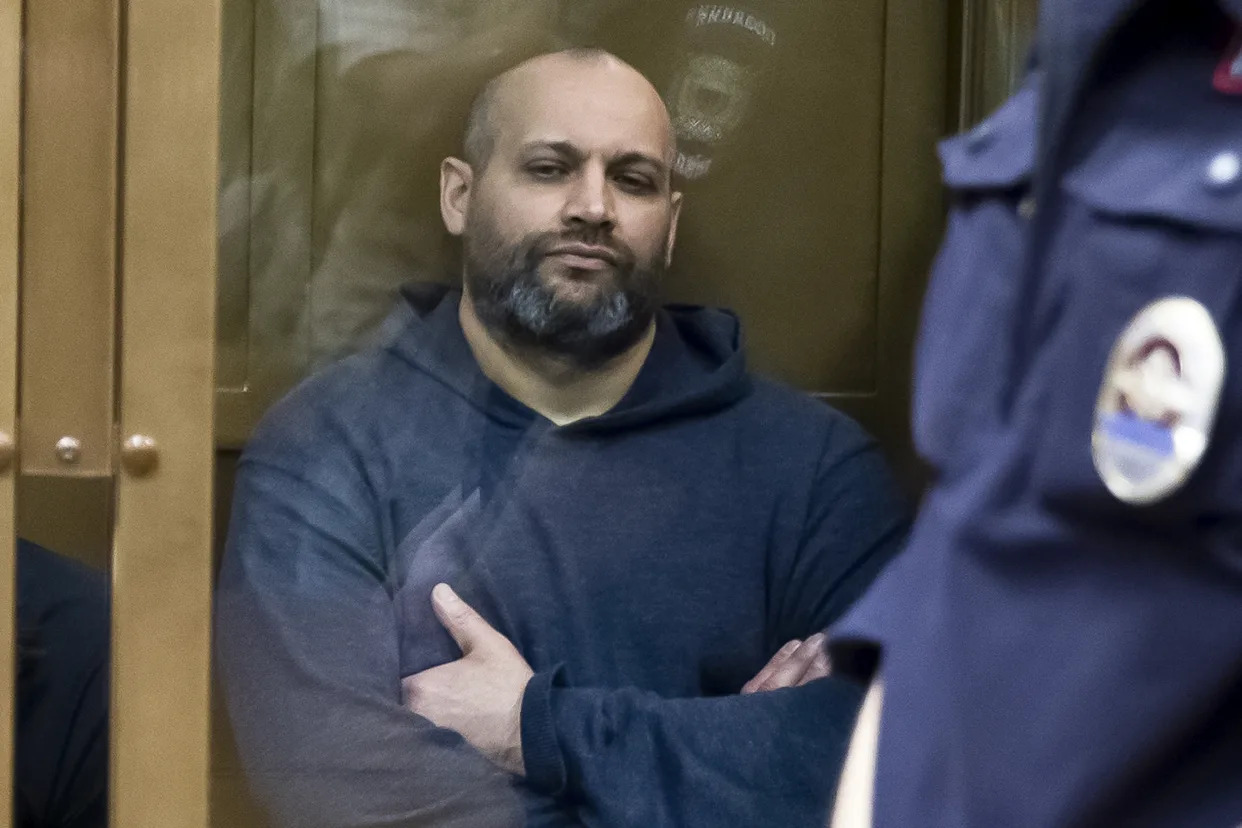Georgii Chentemirov
13 June 2025 -
THE BARENTS OBSERVER
The Barents Observer met with renown human rights activist Oleg Orlov during his visit to Kirkenes, northern Norway, in May 2025. This is a translation of our original Russian-language interview.
— You ended up in a colony for an article in which you called Russia a totalitarian and fascist state. Why exactly? There is still a certain discussion, for example, about what kind of regime exists in Russia — totalitarian or authoritarian.
— First. At the moment, it is already obvious that the state interferes in all aspects of a person's life. Economy, politics, social life — of course; but now religion and art are also under the strictest control. Private life is no longer private, the state is already intruding into the citizen's bedroom — or rather, even the subject's.
When nothing is left without state control, we can already talk about totalitarianism.
Let's look further. In the Soviet period, the pioneers, the Komsomol, the school as a whole were used as mechanisms of propaganda. Now we see exactly the same thing; this is also an element of totalitarianism.
Next: what kind of totalitarianism is this? Certainly not communist. So what is it? Well, I took the formal definition of the Russian Academy of Sciences and started comparing it with what is happening.
Firstly: it is a political practice and theory that proclaims exclusivity over other ethnicities, states, nations. And they have proclaimed a separate nation, a civilisation that has priority over others. Next: suppression, discrimination against other ethnicities or nations. Well, listen, the denial of the very existence of the Ukrainian people, the Ukrainian language, Ukrainian culture — what is that? It's the same thing. Next, the cult of the leader; well, it's pointless to talk about it.
Next — suppression of political opposition and dissent (!) through state terror; there's no need to discuss it much, let's see who and for what they imprison. And finally — the justification of war as a means of resolving interstate contradictions.
And in my article, I simply suggested: let's discuss, there are other points of view, but from my point of view, this can be called fascism. Well, that's why I was imprisoned.
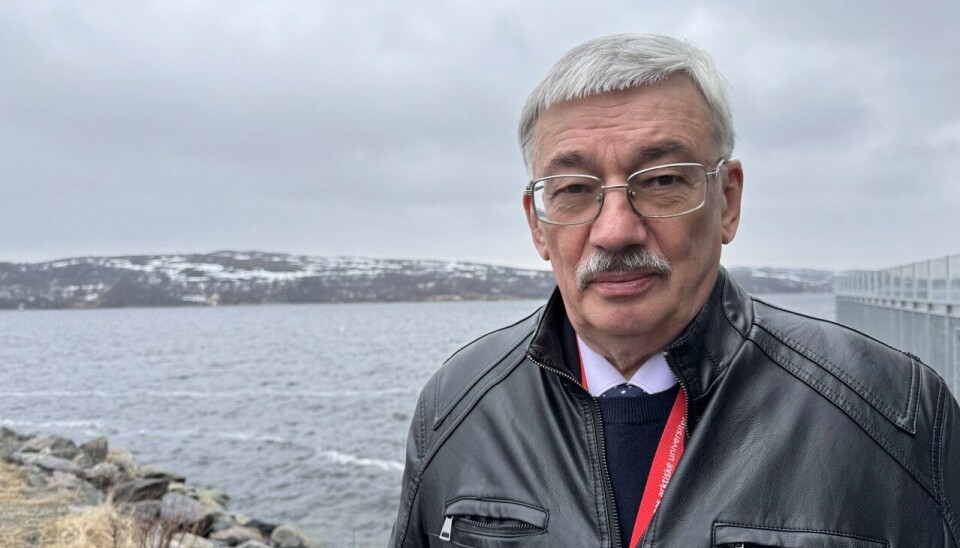
Oleg Orlov came to Kirkenes to speak at the Kirkenes Conference. Photo: Georgii Chentemirov
Oleg Orlov
Oleg Orlov began his public activities back in 1979. He distributed leaflets about the war in Afghanistan and the situation in Poland. Since 1988, he became a member of the initiative group "Memorial". Orlov worked during the Chechen war and participated in negotiations for prisoner exchanges. In 1995, he was part of a group that negotiated with terrorist Shamil Basayev, who had taken 1,200 residents of the town of Budyonnovsk in the Stavropol region hostage. Orlov, along with several human rights activists, deputies, officials, and journalists, surrendered as hostages to secure the release of civilians. In March 2023, a case was initiated against Oleg Orlov for repeated "discrediting" of the Armed Forces; he was sentenced to 2.5 years in prison. In August 2024, Orlov was included in a prisoner exchange group: Russian political prisoners were exchanged for spies and murderers.
— What is the secret of fearlessness?
— I don't know.
— No, you do know. You voluntarily went as a hostage to Shamil Basayev in 1995. While in Russia, you did things for which you could be imprisoned, and you were eventually imprisoned. A huge number of people would not be ready even for a tenth of what you did. Is there some kind of recipe?
— I have no recipe, and the word “fearless” doesn't fit either.
I was very scared in two instances in my life. The first was on the eve of prison: you are constantly gnawed by a worm — damn, what will happen there?.. And the second was when I was printing leaflets back in Soviet times. And I understand why I was so scared: I was alone. And from this, I think, comes some conclusion.
Firstly, there must be some sphere of tasks. You understand that you are doing some important work, necessary work. But that's not enough; secondly, you must not be alone. Even placing yourself in a line of people who were before, who are now, and who will be in the future… It's not a recipe, but it helps.
— Where were you more scared: as a hostage of Basayev or in a Russian prison?
— People don't believe me, but I wasn't scared as a hostage. On the contrary, I was inspired. We achieved what we wanted — to free the hostages and save them. And it gave a colossal sense of work done.
In prison, the hardest part was the first day. You find yourself in an absolutely incomprehensible, unfamiliar, unclear situation. I read a lot, talked to people, but still. I was riding in a prison van, alone, into complete unknown… And after entering the cell, getting to know my cellmates, prison life began. And my prison experience was much easier than many others.
— There are currently about a thousand political prisoners from Russia on Memorial's lists. By how much, in your opinion, is this figure underestimated?
— Memorial's lists are a special thing, every letter is verified, we know everything about the criminal case. But this is the lower limit. I have been in five prisons and in each I tried to find out how many political prisoners there were. [Everywhere I encountered] familiar names, but then I counted — and found out exactly as many people who are obviously imprisoned for political reasons, but nothing is known about them. Anti-war statements; someone went out on a picket; a person who was obviously framed for espionage; Jehovah's Witnesses and other religious people, no one knows anything about them at all.
And how many conscientious objectors are imprisoned? We don't know if all of them are for political reasons or not. And how many civilians have been taken from the so-called "new territories" of Russia?
Well, if you estimate, it's thousands of people.
— Are repressions an internal matter of Russia? Or not so internal?
— Any political repression is not an internal matter of a country. A country that suppresses the freedoms of its citizens and engages in political repression is very likely to pose a threat to the outside world.
The entire post-war world is built on the premise that human rights are not a domestic affair. The Soviet Union denied this, but since 1991, it seemed that everyone accepted this viewpoint.
Human rights Expert Council
In 2004, Oleg Orlov joined the Expert Council under the Commissioner for Human Rights in the Russian Federation. He was also a member of the Human Rights Council but left it after Vladimir Putin's statement that the murder of Anna Politkovskaya caused more harm to Russia than her publications.
— What has the Human Rights Council and the institution of the Human Rights Commissioner turned into? The idea is a good one.
— Figuratively speaking, it has turned into a bow on a rotten and spoiled cake. The idea you are talking about, a real bridge between the authorities and society, has long been lost.
I slammed the door and left after the murder of Anna Politkovskaya, the disgraceful words the president said about it. But many of my colleagues stayed, they were striving to save specific people. You can't achieve any systemic changes there, but you can help those sitting in one prison or another, pull someone out from under a fabricated charge.
Now even that is no longer possible.
— Why? I understand the logic of Putin's regime: they need to retain power, they have built a system for this task, and of course, they will not change it. But do they really need this specific prisoner to be tortured, or for a hundred-year-old war veteran to live in a barrack without a toilet? Are they deliberately making life difficult for people?
— It seems to me that Putin personally has sadistic tendencies. It's obvious with Aleksei Navalny: he really enjoyed [torturing Navalny], his instructions were followed. But I don't think they are all sadists. I think they have a different, also inhumane, logic: when you chop wood, chips fly. For them, people are chips.
Listen, [in the Kremlin they reason like this:] we have a colossal task — a huge empire, a multipolar world. And an individual can be sacrificed without problems. Well, what can you do? In order for us to fulfil our functions, we have to treat some people very harshly. And then the order goes down the chain, which, in the absence of any control from society, unties the hands of sadists; look at how they are now treating Ukrainian prisoners, it's pure sadism.
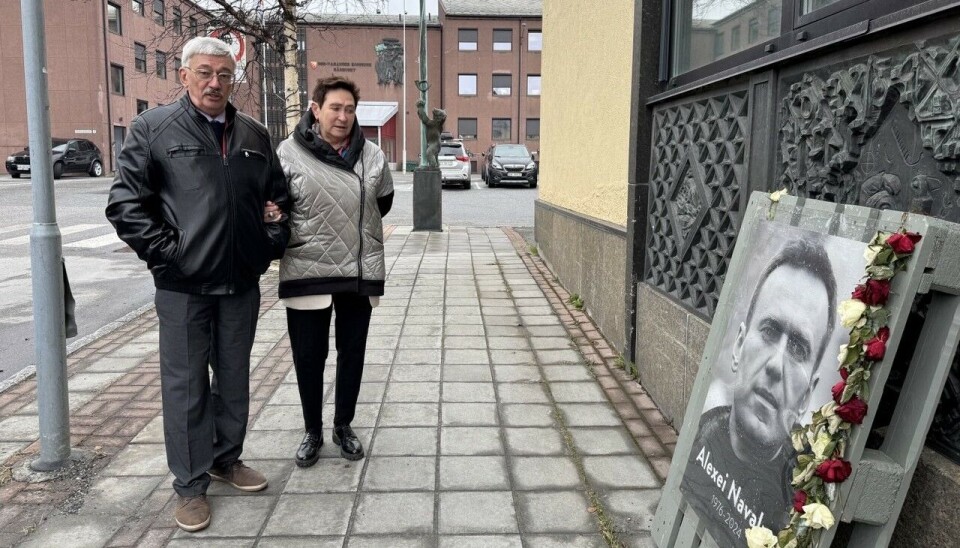
Oleg Orlov came to Kirkenes with his wife, human rights activist Tatyana Kasatkina. A memorial to Aleksei Navalny appeared in Kirkenes immediately after his death in the colony. The memorial is supported by local anti-war activists. Photo: Georgii Chentemirov
— Two pieces of news almost on the same day: in Komi, the only fund for preserving the memory of political repressions closed, and in the Moscow metro, they restored a bas-relief with Stalin…
— In Russia, there is a totalitarian regime, which significantly relies on people with a Stalinist mindset, on security forces where Stalinist methods are also popular. The revival of Stalinism is, to a large extent, also coming from below, from this group of people. And of course, somewhere deep in his mind, comrade Putin compares himself to Stalin.
The only initiative, it seems to me, that they do not suppress is denunciations, repressions, and new demands for repressions.
— Do they not want to create such public opinion that would allow them to bring back execution articles?
— I think that among people socially close to Putin, this is one of the main ideas. And if they push a little, I think the Putin regime will meet them halfway.
War crimes
After being released from a Russian prison, Oleg Orlov continued his human rights activities. Together with colleagues from the Human Rights Centre "Memorial" and the Kharkiv Human Rights Group, Orlov documented war crimes committed by the Russian army in Ukraine. In May 2025, Oleg Orlov spoke at the Kirkenes Conference, where he talked about repressions in Russia.
— Why did you decide to come to Kirkenes and speak at the conference?
— When connections between Norway and Russia are halted, it is very important for someone to be here and speak with the voice of at least part of Russia.
I spoke about that Russia which is not Putin's. The main goal of my speeches is, firstly, to say and show that there is another Russia, because time and again I encounter the fact that in Europe all Russians are painted with the same brush. And within Russia, there are many people who do not support Putin, but their voices are often not heard. I hope I am understood ...
My second message is the continuation of support for Ukraine. Stopping such support is very dangerous.
— Russia has unleashed a bloody war, creating tension on the border with European countries, and Russian officials and propagandists are threatening the world with nuclear weapons. And there is a great temptation to resort to rhetoric — let's surround Russia with a moat filled with crocodiles... What do you think about this?
— The threat is real, and building a defence against it is absolutely right. But to imagine that we will put up a wall with barbed wire and let the grass grow — this is, to put it mildly, unproductive and unreasonable in the long term, because the country exists, and it will not disappear. And the longer and stronger this regime lasts, and if there is a 'Putin' after Putin, it is very, very bad for everyone, not only for Russia but for all of Europe.
That is why it is necessary to know that in Russia there are not only Putinists; we must interact with these forces; and we must think about what will happen after Putin.
And the more support for Ukraine, the more hope that after Putin there will be a movement of Russia towards democracy.
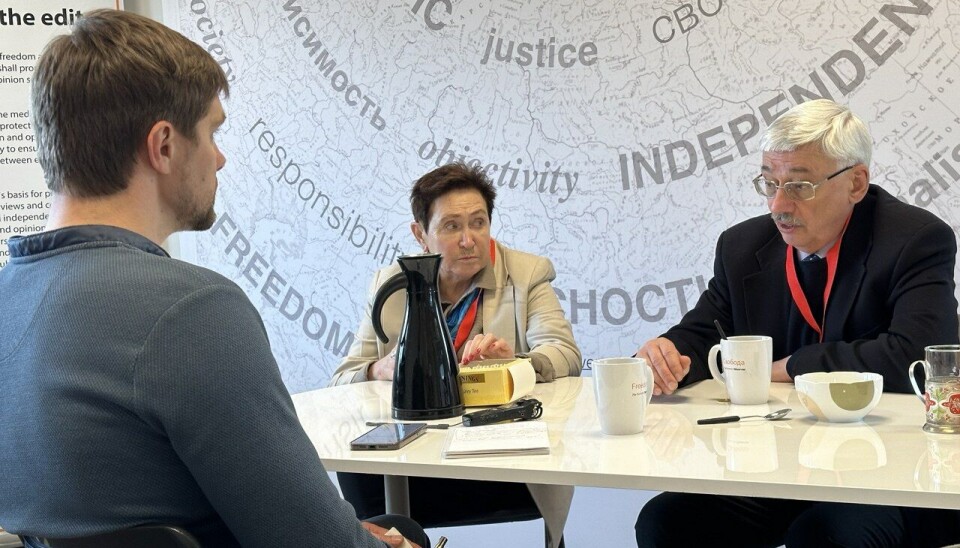
Фото: Денис Загорье
— When talking about how Russia could become a normal state, one of the discussed options is the collapse of the country: so that the empire ceases to be an empire. How realistic is this and would it be beneficial?
— There is no definite answer, and any discussions about the dissolution of the state, about parts of present-day Russia gaining independence, must be approached very responsibly and very cautiously. This is exactly the case where you should measure ten times and cut once, because ill-considered steps can lead to truly horrific consequences.
For example, I have worked a lot in the North Caucasus. I have seen how what seemed like a good idea of gaining one's own state can lead to extremists seizing or attempting to seize power. I will use this word, although it has been discredited by Putin; but real extremists are people who do not want to calculate anything, but only want to cut. This is very difficult and dangerous.
Russia has almost always been an empire. And this is a very difficult question for me: can Russia exist not as an empire? I hope so. What can Russia turn into? A real federal state.
— Why has the Russian government turned against the indigenous peoples? This has always been a trump card and a propaganda cliché: Russia is the largest, we have Baikal, and also — 190 ethnic groups... And then they go and label them all as extremists!
— We must see reality behind the words. In reality, what happened to the indigenous peoples? Poverty, widespread drunkenness, dominance of industrialists. Now, when the regime has become totalitarian, the initiatives of all those who genuinely defend the indigenous peoples, who oppose the violence of the state and the monopolies behind it, are being suppressed.
The Kremlin is not so much against indigenous peoples as it is against any initiative, independence, and protection of human rights.
— We are sitting here in Kirkenes, talking; you spoke at the conference, and I will write an article. Will this have any impact?
— My teacher, Sergei Adamovich Kovalev, a Soviet dissident, a former Soviet political prisoner, the first Commissioner for Human Rights in Russia, had a motto, not invented by him, but practiced by him: "Do what you must, and let it be what it will be." So I just do what I must, and that's all.



